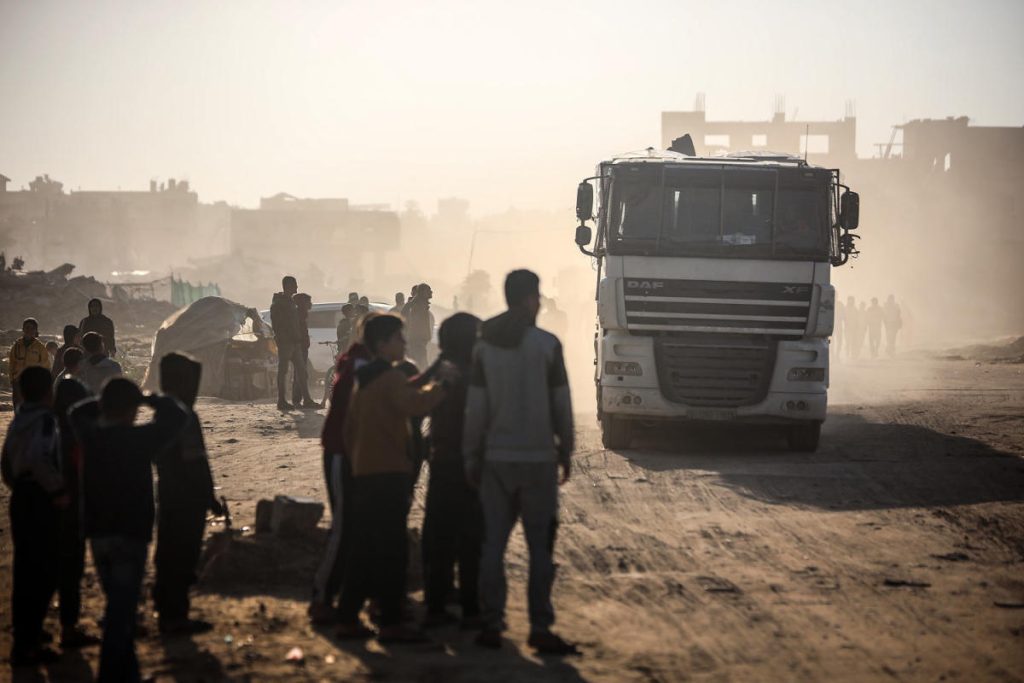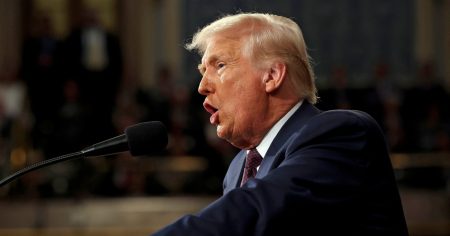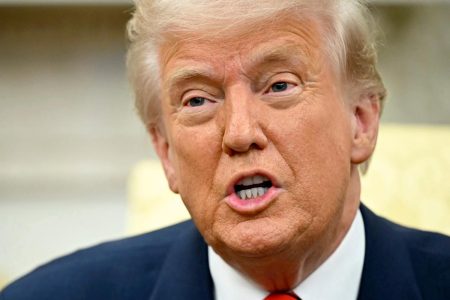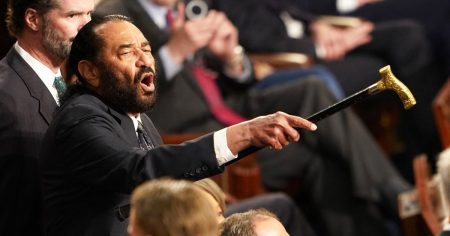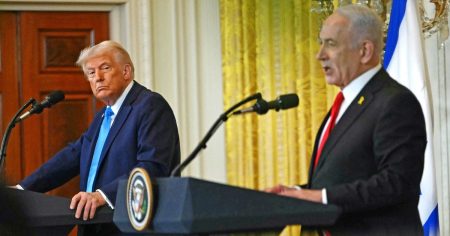H2: Aid Agencies Raise Alarm Over Trump’s USAID Overhaul
Humanitarian organizations are warning that President Donald Trump’s abrupt freeze on U.S. foreign aid is disrupting life-saving assistance to vulnerable populations worldwide, with Gaza’s war-torn communities among the hardest hit. A 90-day suspension of development assistance, enacted last month to align with Trump’s “America First” agenda, has delayed critical supplies like food and medicine globally. In Gaza—where over 47,000 lives have been lost since October 2023—agencies fear this pause could deepen suffering amid ongoing infrastructure collapse and famine risks. Jesse Marks of Refugees International emphasizes that frontline humanitarian workers, who run field hospitals and distribute aid, are already feeling the strain. “These are the people managing crises daily,” he said. “Delays cost lives.”
H2: USAID’s Vital Role in Palestinian Communities
For decades, the U.S. Agency for International Development (USAID) has been a lifeline for Palestinians in Gaza and the West Bank. Since 2021, the agency invested over $600 million in economic support and allocated $1.2 billion in humanitarian aid following Hamas’ October 2023 attacks. Just months ago, USAID pledged an additional $230 million to rebuild Gaza’s economy and infrastructure. Amy Tohill-Stull, USAID’s West Bank and Gaza mission director, reaffirmed America’s “steadfast commitment” to Palestinian communities. However, Trump’s freeze—and hints of dismantling USAID altogether—has thrown these promises into doubt. With Israel banning another key aid provider, the United Nations Relief and Works Agency (UNRWA), Gaza’s humanitarian pipeline now hangs by a thread.
H2: Policy Shifts and Controversial Proposals
Trump’s overhaul of foreign aid has sparked confusion and outrage. While his administration insists reforms aim to streamline programs, SpaceX CEO Elon Musk—labeled a White House adviser—claimed they’re actively “shutting down” USAID. Concurrently, Trump has floated the idea of U.S. control over Gaza, suggesting Palestinians could be relocated to “safer, modern communities” in the region. Critics argue such rhetoric ignores Gaza residents’ trauma and right to self-determination. Secretary of State Marco Rubio defended the changes, stating they’re “not about eliminating aid” but increasing efficiency. Yet aid groups counter that abrupt staff dismissals and funding cuts erode decades of expertise in poverty reduction and disaster response.
H3: Collateral Damage on Gaza’s Front Lines
The freeze’s immediate impacts are stark. The International Medical Corps (IMC), which operates two field hospitals in central Gaza, warns it may halt services without USAID’s $68 million in support. These facilities treat 33,000 patients monthly amid bombings and scarce resources. UNICEF reports that while northern Gaza hasn’t yet seen drastic cuts, the ceasefire’s fragility leaves families vulnerable. Abby Maxman of Oxfam America condemned the administration’s moves, calling them a “callous power play” that risks millions of lives. “Dismantling USAID throws away decades of progress against hunger and disease,” she stressed. Meanwhile, U.S. military aid to Israel—$17.9 billion in 2023 alone—continues unabated, deepening perceptions of inequity.
H2: Global Repercussions and Condemnation
The aid suspension extends beyond Gaza. UNRWA, which supports 5.9 million Palestinian refugees, lost U.S. funding over Israeli allegations linking staff to Hamas’ October attacks. The World Bank warns Gaza’s economy shrank by 86% in 2023, with unemployment surpassing 80%. As hospitals run out of anesthesia and families scramble for bread, aid workers describe a race against time. “This isn’t just about Gaza,” said Marks. “It’s about whether the U.S. remains a leader in global humanitarian response.” International leaders, including EU diplomats, have urged Washington to reconsider, fearing destabilization across the Middle East.
H2: An Uncertain Path Forward
The current ceasefire offers a fleeting chance to deliver aid, but agencies fear long-term damage. If USAID folds, gaps in disaster response could worsen global crises from Sudan to Ukraine. Gaza’s reconstruction, already a distant hope, may collapse entirely without sustained investment. For Palestinian families living in rubble, Trump’s policies—and ambiguous proposals—add uncertainty. “Where do we go?” asked a displaced mother in Khan Younis. “Our home is gone.” As debates over aid efficacy rage in Washington, those on the ground plead for urgency. Without swift action, warns Maxman, “the consequences will be measured in lives lost.”


